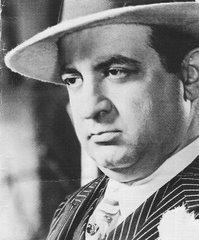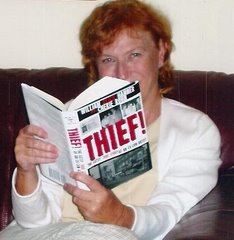 This story appeared In Reuters Internet News:
This story appeared In Reuters Internet News:Fri Nov 27, 2009 4:06pm EST
Treasury, Fed delay Internet gambling ban 6 months
By David Lawder WASHINGTON (Reuters)
WASHINGTON (Reuters) - The U.S. Treasury and Federal Reserve on Friday delayed the implementation date for a new Internet gambling payment ban for six months, a move that gives lawmakers time to overturn it or end confusion over illegal practices.
In a joint statement, the Treasury and Fed said the December 1 implementation date for the law passed in 2006 would not be achievable for some financial institutions. They set a new compliance deadline of June 1, 2010.
"Commentators expressed concern that the act and the final regulation do not provide a clear definition of 'unlawful Internet gambling,' which is central to compliance," the two agencies said.
In addition, they said certain members of Congress have "expressed an intent to consider legislation that would allow problematic aspects of the act to be addressed."
The 2006 law, which cost European Internet gambling companies billions of euros in lost market value, prohibits credit card, check, and electronic fund transfer payments by U.S.-regulated financial institutions in connection with "unlawful Internet gambling."
But rather than define what types of gambling are illegal online, the bill relied on existing federal and state laws to answer that question. It also still allowed any online horse race betting permissible under the Interstate Horseracing Act of 1978.
FRANK SEEKING TO OVERTURN BAN
Congress passed the anti-gambling legislation in 2006, when Republicans still controlled both the House and Senate. The final regulations issued to enforce the ban were issued by the Treasury and Fed just before former President George W. Bush left office in January.
Representative Barney Frank, who chairs the House Financial Services Committee, in October urged a 12-month delay in the implementation because of confusion over what kinds of online gambling were illegal under the bill.
Frank's committee in September 2008 passed a bill to overturn the ban, but the full House never acted on the measure. Frank earlier this year reintroduced the bill, which would effectively overturn the ban and create a framework for the Treasury to license Internet gambling operators, collect taxes from them and enforce rules for transparency.
On Friday, Frank praised the Treasury and the Fed for delaying the regulations, which he said would "curtail the freedom of Americans to use the Internet as they choose" and put unrealistic burdens on financial institutions.
"This will give us a chance to act in an unhurried manner on my legislation to undo this regulatory excess by the Bush administration and to undo this ill-advised law," Frank said in a statement.
Frank has scheduled a hearing next Thursday on the legislation, dubbed the "Internet Gambling Regulation, Consumer Protection and Enforcement Act."
The six-month delay will allow banks to establish policies and procedures to require gambling businesses to document the legality of their activities, the Treasury and Fed said.
(Editing by Kenneth Barry)





